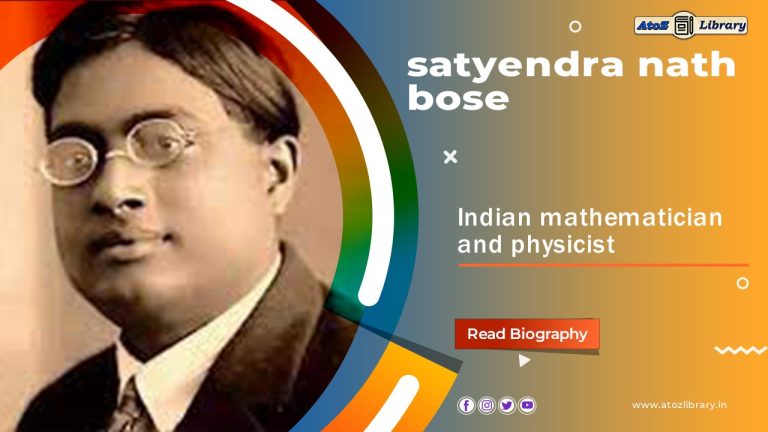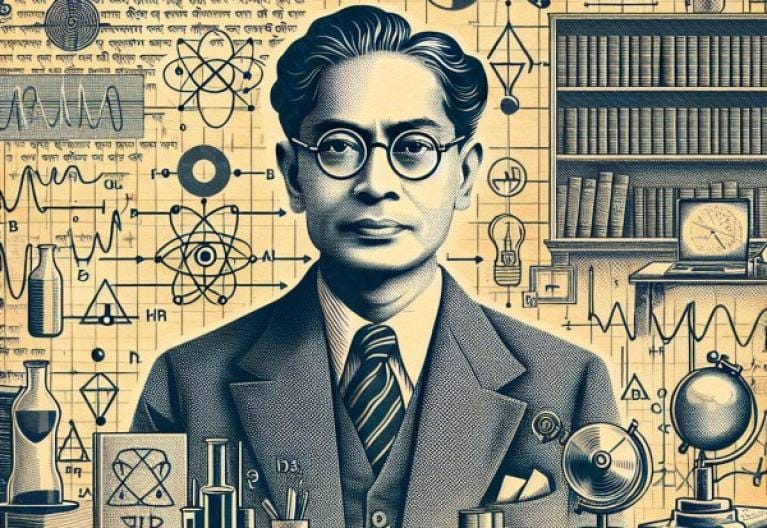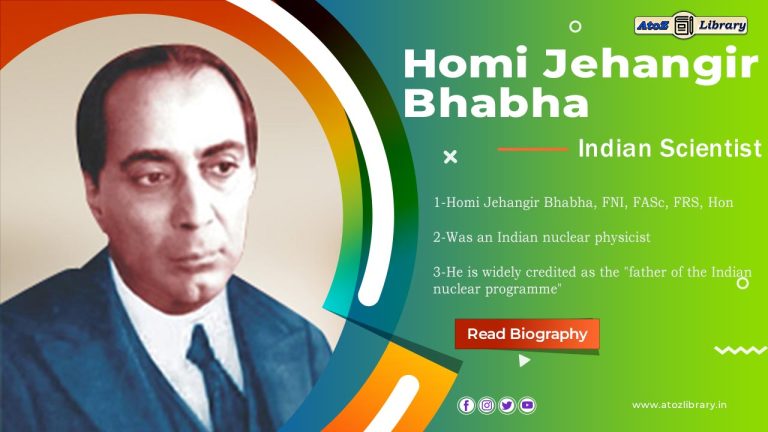Introduction
APJ Abdul Kalam, also known as the “Missile Man of India,” was a renowned scientist, engineer, and statesman who served as the President of India from 2002 to 2007. Born on October 15, 1931, in Rameswaram, Tamil Nadu, India, Kalam came from a humble background and was the youngest of five siblings. Despite financial challenges, his father instilled in him a strong value system and the importance of education.
Kalam went on to study physics and aerospace engineering at the Madras Institute of Technology and later joined the Defence Research and Development Organisation (DRDO) and the Indian Space Research Organisation (ISRO). He played a key role in India’s civilian space program and military missile development, and was instrumental in the development of India’s first satellite launch vehicle.
Aside from his scientific contributions, Kalam was also known for his simplicity, humility, and passion for education. He was deeply committed to the cause of science and technology for the betterment of society and was a strong advocate for the education of the youth. During his presidency, Kalam’s focus was on education, science, and technology, and he is remembered as a visionary leader who left an indelible mark on India’s history.
In this biography article, we will delve deeper into the life and achievements of APJ Abdul Kalam, exploring his early life, education, scientific contributions, and political career.
Early life and education Of APJ Abdul Kalam
APJ Abdul Kalam was born on October 15, 1931, in Rameswaram, Tamil Nadu, India to Jainulabdeen and Ashiamma. His father was a boat owner and imam of a local mosque, while his mother was a homemaker. Kalam was the youngest of five siblings and grew up in a financially challenged family. Despite this, his father instilled in him a strong value system and the importance of education.
Kalam completed his school education in Rameswaram and was an average student, but he was hardworking and had a strong interest in mathematics and physics. He went on to study physics and aerospace engineering at the Madras Institute of Technology and graduated in 1960.
After graduation, Kalam joined the Defence Research and Development Organisation (DRDO) and later the Indian Space Research Organisation (ISRO) where he played a key role in India’s civilian space program and military missile development. He was instrumental in the development of India’s first satellite launch vehicle, which successfully deployed the Rohini satellite in orbit in July 1980. He rose to fame as the “Missile Man of India” for his work on the development of India’s missile technology.
Kalam was known for his simplicity, humility, and passion for education. He was deeply committed to the cause of science and technology for the betterment of society. He went on to become the President of India from 2002 to 2007, and his tenure was marked by a focus on education, science, and technology.
In conclusion, APJ Abdul Kalam’s early life and education played a significant role in shaping his future as a scientist, engineer, and statesman. His journey from a humble background to becoming the President of India is an inspiration to millions of people around the world.
APJ Abdul Kalam’s career as a scientist
His career as a scientist spanned over four decades and was marked by numerous achievements in the field of aerospace engineering and missile technology. He started his scientific journey as a scientist at the Defence Research and Development Organisation (DRDO) where he worked on various projects related to missile technology.
In 1969, Kalam joined the Indian Space Research Organisation (ISRO) where he played a key role in the development of India’s first satellite launch vehicle (SLV-III). The successful deployment of the Rohini satellite in orbit in July 1980 was a major milestone in Kalam’s scientific career and established India as a major player in the field of space technology.
After the success of the SLV-III program, Kalam was appointed as the project director of India’s Integrated Guided Missile Development Program (IGMDP). Under his leadership, India developed a range of missiles including the Agni, Prithvi, and Akash missiles, which made India self-reliant in the field of military technology.
Kalam’s contributions to India’s missile technology earned him the nickname “Missile Man of India” and brought him recognition and accolades both nationally and internationally. He was awarded the Padma Bhushan, India’s third-highest civilian award, in 1981, and the Padma Vibhushan, India’s second-highest civilian award, in 1990, in recognition of his scientific achievements.
Throughout his career, Kalam remained deeply committed to the cause of science and technology for the betterment of society. He was a strong advocate for the education of the youth and encouraged young people to pursue careers in science and technology. His work inspired generations of scientists and engineers and will continue to inspire future generations for years to come.
In conclusion, APJ Abdul Kalam’s career as a scientist was marked by numerous achievements in the field of aerospace engineering and missile technology. His contributions to India’s space and military programs have earned him recognition as one of India’s greatest scientists and have cemented his legacy as a visionary leader who paved the way for India’s progress in the field of science and technology.
Related post:- Read In Details About Sardar Vallabhbhai Patel: The Iron Man of India
Personal life of APJ Abdul Kalam
APJ Abdul Kalam was a man of simple tastes and habits. Despite his numerous achievements and high office, he lived a modest and unassuming life, and was widely known for his simplicity and humility.
Kalam was a spiritual person and was deeply committed to his faith. He regularly recited the Quran and was an avid reader of books on spirituality and religion. He also believed in the importance of a healthy lifestyle and was a vegetarian and non-smoker.
One of Kalam’s passions was writing. He was an accomplished author and wrote several books on his experiences and views on life, including “Wings of Fire: An Autobiography,” “Ignited Minds: Unleashing the Power Within India,” and “My Journey: Transforming Dreams into Actions.” These books provide a glimpse into his personal life and his philosophy on life, education, and leadership.
Kalam never married and lived a solitary life. He was deeply committed to his work and devoted himself to the cause of science, technology, and education. Despite his busy schedule, he made time for young people and was known for his interactions with students and his inspiring speeches to the youth.
In conclusion, APJ Abdul Kalam’s personal life was defined by his simplicity, humility, and devotion to his faith, work, and the cause of education. He lived a modest and unassuming life and remained deeply committed to his beliefs throughout his life. His passion for writing and interaction with the youth have left a lasting legacy and have inspired millions of people around the world.
Abdul Kalam as precedent of India
APJ Abdul Kalam served as the President of India from 2002 to 2007. Before his presidency, Kalam had a long and illustrious career as a scientist and engineer, and was known for his contributions to India’s civilian space program and military missile development.
Kalam was born on October 15, 1931, in Rameswaram, Tamil Nadu, India. He came from a humble background and was the youngest of five siblings. Despite financial challenges, his father instilled in him a strong value system and the importance of education.
After completing his education, Kalam joined the Defence Research and Development Organisation (DRDO) where he worked on various projects related to missile technology. In 1969, he joined the Indian Space Research Organisation (ISRO) where he played a key role in the development of India’s first satellite launch vehicle (SLV-III).
In 1983, Kalam was appointed as the project director of India’s Integrated Guided Missile Development Program (IGMDP) and led the development of a range of missiles including the Agni, Prithvi, and Akash missiles, which made India self-reliant in the field of military technology.
In recognition of his scientific achievements, Kalam was awarded the Padma Bhushan in 1981 and the Padma Vibhushan in 1990. He was also awarded the Bharat Ratna, India’s highest civilian award, in 1997, in recognition of his contributions to the field of science and technology.
After a long and illustrious career as a scientist and engineer, Kalam was elected as the President of India in 2002. During his presidency, Kalam’s focus was on education, science, and technology, and he is remembered as a visionary leader who left an indelible mark on India’s history.
In conclusion, APJ Abdul Kalam’s precedent life was marked by numerous achievements in the field of aerospace engineering and missile technology. His contributions to India’s space and military programs and his commitment to the cause of education made him a well-respected and widely admired leader in India and around the world.
Related post:- Raja Ram Mohan Roy Biography: The founders of the Brahmo Sabha
Writings of APJ Abdul Kalam
APJ Abdul Kalam was not only a renowned scientist and engineer, but also a prolific writer. Throughout his life, he wrote several books and articles on his experiences, views on life, education, leadership, and his vision for India’s future.
Kalam’s first book, “Wings of Fire: An Autobiography,” published in 1999, is a memoir of his life and career, from his childhood in Rameswaram to his tenure as President of India. The book provides a detailed account of his journey from a young boy from a humble background to a respected scientist and leader.
Another one of Kalam’s notable books is “Ignited Minds: Unleashing the Power Within India,” published in 2002. In this book, Kalam outlines his vision for a developed and prosperous India, and stresses the importance of education, technology, and leadership in achieving this goal. He also provides practical tips on how individuals can unleash their inner potential and contribute to the development of their communities and the nation.
“My Journey: Transforming Dreams into Actions,” published in 2006, is another of Kalam’s notable books. In this book, Kalam shares his life’s philosophy and lessons he learned along the way. He stresses the importance of dreaming big, setting goals, and taking action to turn those dreams into reality.
Kalam also wrote several articles on education, technology, and leadership, and was a frequent speaker at universities, schools, and public events. His speeches and writings have been widely read and inspired millions of people around the world, especially the youth.
In conclusion, APJ Abdul Kalam was not only a great scientist and engineer, but also a visionary writer. His books and articles provide a glimpse into his personal life, his philosophy on education, leadership, and his vision for India’s future. He remains an inspiration to millions of people around the world, especially the youth, and his writings continue to be widely read and cherished.
Awards and honours of APJ Abdul Kalam
APJ Abdul Kalam was a renowned scientist, engineer, and leader, who received numerous awards and honors for his contributions to India’s space program, military missile development, and education. Some of the most notable awards and honors that he received include:
- Padma Bhushan: Kalam was awarded the Padma Bhushan, India’s third highest civilian award, in 1981, in recognition of his contributions to the field of science and technology.
- Padma Vibhushan: He was awarded the Padma Vibhushan, India’s second highest civilian award, in 1990, in recognition of his exceptional work in the field of aerospace engineering and missile technology.
- Bharat Ratna: Kalam was awarded the Bharat Ratna, India’s highest civilian award, in 1997, in recognition of his contributions to the field of science and technology and his leadership as the President of India.
- Doctorates: Kalam was awarded numerous doctorates from several universities, including the Indian Institute of Technology (IIT), Delhi, the Indian Institute of Management (IIM), Ahmedabad, and the Indian Institute of Science (IISc), Bangalore.
- Honorary degrees: Kalam was also awarded several honorary degrees from universities around the world, including the University of Waterloo, Canada, the University of Edinburgh, Scotland, and the Aligarh Muslim University, India.
- Other awards: Kalam received several other awards, including the Veer Savarkar Award, the King Charles II Medal, the Space Pioneer Award, and the National Integrator Award.
In conclusion, APJ Abdul Kalam was a highly decorated and honored individual, who received numerous awards and honors for his contributions to India’s space program, military missile development, and education. His achievements and recognition serve as a testament to his exceptional talent and hard work, and his legacy continues to inspire millions of people around the world.
Related post:- The Lion of India: The Life and Legacy of Balgangadhar Tilak
Death of APJ Abdul Kalam
APJ Abdul Kalam passed away on July 27, 2015, while delivering a lecture at the Indian Institute of Management (IIM), Shillong. He was 83 years old at the time.
Kalam was in the middle of a lecture on “Livable Planet Earth” when he suddenly collapsed on the stage. He was immediately rushed to the hospital, but despite efforts to revive him, he was declared dead on arrival.
His death was a great loss to the nation, and was widely mourned by people from all walks of life. The Indian government declared seven days of national mourning in his honor, and he was accorded a state funeral in Delhi.
Kalam’s death was also mourned by people around the world, who remembered him as a great scientist, engineer, and leader, who had inspired millions of people with his vision, passion, and dedication. He was widely referred to as the “Missile Man of India” and the “People’s President,” and was remembered for his contributions to India’s space program, military missile development, and education.
In conclusion, APJ Abdul Kalam’s death was a great loss to the nation and the world, and he remains an inspiration to millions of people around the world, who remember him for his achievements, vision, and passion.





